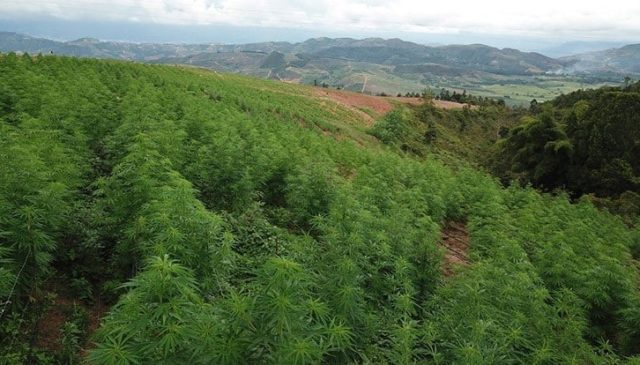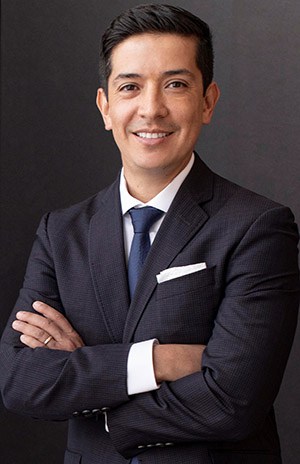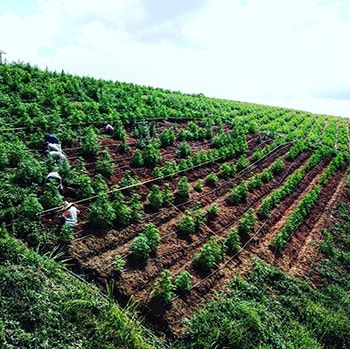
Less than a month after debuting on the Nasdaq Stock Market, Colombia-based cultivator Flora Growth is connecting its cannabis pipeline to Europe through a manufacturing and distribution partnership with Hoshi International.
Headquartered in Toronto, but with 95% of its operations in Colombia, globally motivated Flora Growth made a 2-million-euro ($2.4 million) strategic investment to become a preferred supplier to Hoshicap Portugal—a subsidy of Toronto-based Hoshi International—the company announced June 7.

Courtesy of Flora Growth | floragrowth.ca
The investment will provide Flora access to extraction facilities in Malta and Portugal to process its cannabis derivatives from Colombia and distribute them through Hoshi’s channels throughout Europe. The transaction is the first of many steps intended by Flora to launch its seven brands and 300-plus products across the world, President and CEO Luis Merchan told Cannabis Business Times. Flora’s cultivation practices to supply cannabis derivatives also include business divisions in cosmetics, hemp textiles, and food and beverage.
The Portugal license will allow for the cultivation and import of cannabis produced through good agricultural and collection practices (GACP)—guidelines outlined by the World Health Organization for medicinal plants—and also enable the Good Manufacturing Practice (GMP)-certified processing facility to export indoor and outdoor medical cannabis throughout Europe.
In Malta, Hoshi is completing its GMP facility to produce, process and package cannabis products, including oil derivatives, to be distributed throughout the European Union (EU). Hoshi’s Maltese entity received a provisional medical cannabis license covering cultivation, processing and importation/exportation under Malta’s Production of Cannabis for Medicinal and Research Purposes Act.
“Those assets, the cultivation in Portugal as well as the facility in Malta, opened the door to us for completing the supply chain into the European Union,” Merchan said. “That’s very important to us because the market in the European Union is significant. Obviously, the No. 1 economy (in Europe), Germany, is very attractive and clearly is open for the import of cannabis derivatives. And having a partner as Hoshi as a critical partner and preferred distributor for the European Union became a no-brainer.”
Merchan said Portugal and Malta offer favorable regulatory environments, and low labor and energy costs. In addition, Hoshi’s analytical testing labs in Malta will allow Flora to establish a consistent import and distribution hub, which opens the doors for sought-after markets such as Germany, he said.
With a population of roughly 750 million and a health care spend exceeding 2.1 trillion euros, Europe has the potential to become the largest global market for medical cannabis products, according to Hoshi. That’s including non-EU members such as the United Kingdom (U.K.), which rivals Germany and France among the largest economies on the continent.
But that potential high-growth market has yet to be fully tapped because of a lack of legal infrastructure to supply GMP and GACP-grade medical product, according to Hoshi, which is on course to have EU cultivation licenses under both practices by first quarter 2022.
Included in the Flora-Hoshi partnership, Flora will provide access to its library of tested and proven outdoor genetics to Hoshi for eventual cultivation at its Portugal facility. Hoshi also has import distribution agreements in the Czech Republic, Germany, Poland and the U.K.
“With the partnership with Flora Growth, Hoshi can now fast track a number of established initiatives to sell high-quality GACP flower to the EU market,” Hoshi CEO John Aird said in a Flora press release announcing the partnership. “We look forward to working with the Flora team and accessing not only their high-end genetics and outdoor grown cannabis but also assisting Flora [to] move more finished products to its customers across the EU and globally.”

Courtesy of Flora Growth | floragrowth.ca
Founded in 2019, Flora leverages natural, low-cost cultivation practices with an all-outdoor cultivation operation that includes roughly 100 hectares (247 acres) of cannabis in Bucaramanga, Colombia. Approximately 500 miles north of the equator, Flora’s farm produces year-round yields with 12-plus hours of natural sunlight per day and a constant breeze of 3 mph at 1,500 meters above sea level, Merchan said.
Those natural conditions allow Flora to cultivate dried cannabis flower at 6 cents per gram (roughly $25 to $30 per pound), he said.
“We are cultivating under one of the best geographies in the world in terms of flower cultivation,” said Merchan, a dual citizen who was born and raised in Colombia but has spent his entire executive career specializing in retail and consumer packaged goods in the U.S., including his role as Macy’s Inc.’s vice president of workforce strategy and operations.
“The problem with cultivating and growing cannabis in [the U.S. and Canada] is the severe weather, right?” he said. “If you are doing it outdoors, you can only cultivate for a portion of the year. If you want to do it year-round, you have to build massive infrastructures to cultivate indoors, and that immediately increases your cultivation costs over the long term.”
When Flora debuted on the Nasdaq on May 11, the company publicized the U.S.-based initial public offering (IPO) as the first known cannabis cultivator to list without using a special purpose acquisition company (SPAC), reverse merger or dual listing. Flora completed a $30 million pre-IPO equity raise in 2020, and then another $16.6 million once it completed the IPO.
Merchan said Flora already had enough funds to complete the transaction with Hoshi before the listing, but completing the IPO allowed the company to increase its cash position, which opened the door to freely finalize the Hoshi partnership as well as many other deals that are in the works and will be shared with investors and publicly as they become realities.
“[Expanding to Europe has] been part, all along, of our overall long-term strategy,” Merchan said. “We founded Flora Growth under the vision of becoming a global player in the cannabis industry. Europe, it’s a very attractive economy because of acquisition power, but also because of the favorable regulatory environment of some of the countries within the European Union. So, we knew all along that this was going to be an important step towards our expansion and distribution.”
